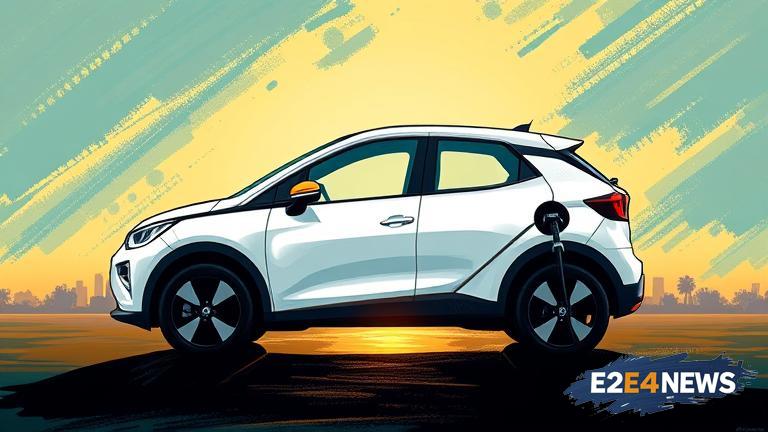The Indian government has announced a comprehensive plan to promote the adoption of electric vehicles (EVs) in the country. The plan includes a range of incentives and initiatives aimed at encouraging the use of EVs, reducing greenhouse gas emissions, and improving air quality. According to reports, the government plans to offer subsidies to EV manufacturers, as well as to consumers who purchase EVs. The subsidies are expected to be in the form of tax exemptions, reduced registration fees, and other benefits. Additionally, the government plans to invest in the development of EV charging infrastructure, including the installation of charging stations along highways and in urban areas. The plan also includes measures to promote the use of EVs in public transportation, such as buses and taxis. The government has set a target of having at least 30% of all new vehicles sold in India be electric by 2030. To achieve this goal, the government plans to work with state governments, industry stakeholders, and other organizations to create a supportive ecosystem for EVs. This will include the development of standards and regulations for EVs, as well as the creation of training programs for workers in the EV industry. The plan also includes measures to promote the use of EVs in rural areas, where they can help to reduce emissions and improve air quality. The government has also announced plans to invest in research and development of new EV technologies, including advanced battery systems and other innovative solutions. Furthermore, the plan includes measures to encourage the use of EVs in the commercial sector, such as by offering incentives to companies that adopt EVs for their fleets. The government has also announced plans to create a network of EV charging corridors along major highways, which will enable long-distance travel by EVs. The plan has been welcomed by industry stakeholders, who see it as a major step forward in promoting the adoption of EVs in India. However, some experts have cautioned that the plan will require significant investment and coordination to be successful. Despite these challenges, the government is confident that the plan will help to achieve its goal of reducing emissions and improving air quality. The plan is also expected to create new job opportunities in the EV industry, which is expected to grow significantly in the coming years. Overall, the Indian government’s plan to promote the adoption of EVs is a major step forward in reducing the country’s dependence on fossil fuels and promoting sustainable transportation. The plan has the potential to make a significant impact on the environment and public health, and is expected to be closely watched by other countries around the world. In addition to the environmental benefits, the plan is also expected to have economic benefits, including the creation of new job opportunities and the stimulation of economic growth. The government has also announced plans to work with international organizations and other countries to share best practices and learn from their experiences in promoting the adoption of EVs. The plan is a key part of the government’s broader strategy to reduce emissions and promote sustainable development, and is expected to play a major role in achieving the country’s climate goals. The government has set a target of reducing emissions by 33-35% below 2005 levels by 2030, and the plan to promote the adoption of EVs is a key part of this effort. The plan is also expected to help to reduce air pollution in urban areas, which is a major public health concern in India. The government has announced plans to work with state governments and other stakeholders to implement the plan and achieve its goals. The plan is a major step forward in promoting the adoption of EVs in India, and is expected to have a significant impact on the environment, public health, and the economy.





